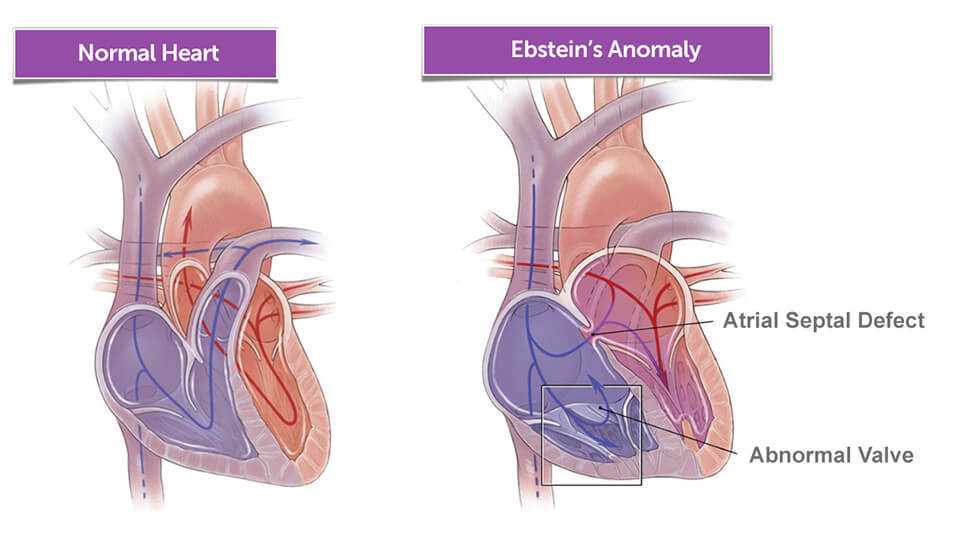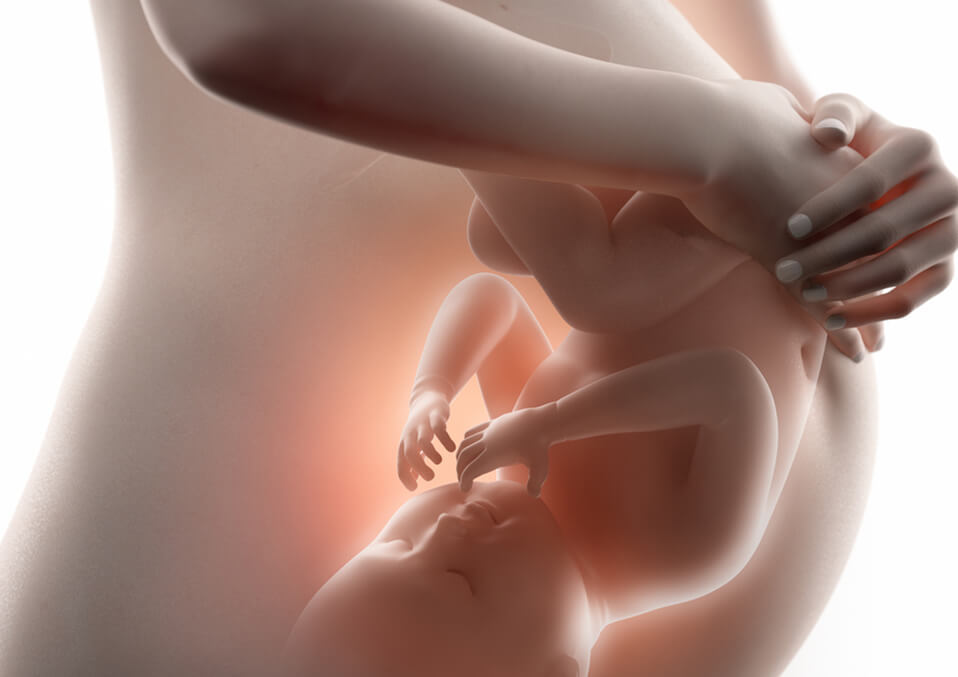
As your baby starts to grow old and becomes a kid; you can see a pattern of his or her genetic development from internal and external factors.
Most birth defects aren’t recognized by a parent not until the kid starts to have complications and worrying symptoms that later show up in their lives; one defect that can be experienced by a kid is Ebstein’s anomaly.
Now let’s take a look at this rare genetic disease and know what it does to your kid’s health and what are some known medical treatments and assessments that will help the kid undergo this genetic disease.
What is an anomaly?

By definition; the anomaly is a term used to describe an abnormality; a difference of a thing from a usual normal thing; anomaly also means something unusual is happening.
Anomaly in medical science is used to describe a genetic abnormality in a specific part of the body, whether it is an anomaly in the brain; heart, lungs, eyes or any other part of the body.
What is ebstein’s anomaly?

Ebstein’s Anomaly is a rare heart condition that resulted from a genetic abnormality during the development of the baby inside the womb; it creates a heart defect that primarily implicates the four valves of the heart; especially the tricuspid valve.
Even though Ebstein’s anomaly is a serious condition that requires medical supervision; it is a rare occurrence; about one in every ten-thousand babies will have this condition.
Ebstein’s anomaly varies in intensity and severity; some kids experience mild Ebstein’s anomaly and some kids and even infants experience severe Ebstein’s anomaly which can be dangerous if not supervised by a medical professional.
Ebstein’s anomaly creates a different heart compared to the normal beating heart; in a normal heart, the main valve that controls the blood flow is the tricuspid valve, the blood flow goes through the upper heart chamber specifically the right atrium; this is where the three flaps of the valve or in medical term is called leaflets; these leaflets allows a normal amount of blood flow from the right atrium to the right ventricle; the leaflets also close to impede the blood flow from going back to the right atrium; this mechanism allows a proper heart function; this also ensures that the beating process of the heart is safe.
Read also:
What is lethal in Ebstein’s anomaly is that it supplants the flaps or leaflets below the ventricle; the flaps are also unusually larger than the normal flaps in a normal heart, the large flaps are also bound to the wall of the ventricle; this abnormality would cause enlargement of the atrium which causes a number of heart diseases such as congestive heart failure; this congestive heart failure happens when there is too much fluid buildup in the heart’s system.
To simply put it; Ebstein’s anomaly is a congenital heart disease that causes abnormally formed leaflets that cause serious heart conditions.
Ebstein’s anomaly is also directly correlated to a number of other birth defects such as pulmonary valve stenosis and atrial septal defect.
What are the causes of ebstein’s anomaly?

Based on many theories; certain defects that infants and kids experience are due to genetic abnormalities or genetic mutations that happened during the development of the baby inside the uterus.
Certain genetic defects can also be a result of the pregnant woman’s diet and external factors, drinking alcohol; smoking or doing drugs can affect the baby’s genes inside the uterus.
In addition to this; Ebstein’s anomaly is directly correlated to lithium exposure and other toxic chemical exposure during pregnancy; however, in most cases, there are no relative studies concerning the exact causes of Ebstein’s anomaly and other genetic disorders.
What are the symptoms of ebstein’s anomaly in infants and kids?
There can be a number of symptoms of Ebstein’s anomaly in kids and infants; usually, severe Ebstein’s anomaly shows up in earlier stages of life and mild Ebstein’s anomaly’s symptoms usually show up during adulthood; the most commonly known symptoms of severe Ebstein’s anomaly are:
- During doctor consultation and checkup, the doctor may notice an abnormal beating pattern in your kid’s heart, this will usually alarm the doctor that there is a complication in the baby’s heart that needs supervision; although detection of irregular beating pattern doesn’t necessarily mean that the kid has Ebstein’s anomaly.
- The kid is experiencing mild to severe heart palpitations or abnormal heart rhythms (arrhythmias)
- The heart of the baby is getting larger as seen through Image scanning
- Cyanosis or bluish skin and nails
- Physical fatigue and weakness; commonly seen as the kid is deteriorating in his or her physical day to day activities
- The shortness of breath, difficulty in breathing especially after light activities such as walking; can have difficulty breathing in sleep which results in short sleep duration
- Slow growth and development. The irregular beating patterns could create a hindrance in the oxygen delivered to the body.
The doctor may perform certain tests and assessments to determine the state of the baby, some of the tests include chest X-ray, electrocardiogram and other physical assessments that include exercises to determine cardiovascular endurance; this is all necessary examination tests to be able to determine if your kid has anomaly; there is also no need to be worried as this examination tests have no health risks to the child.
What are the known medical treatments to ebstein’s anomaly?
Ebstein’s anomaly is a congenital disease and therefore there are no preventive measures to these conditions, considering that the cause would likely be genetics and there are also no known studies to the exact causes of the disorder.
However, this condition when detected properly can be fixed, Ebstein’s anomaly can be fixed through heart-valve surgery and repair or heart-valve replacements.
Final notes
Ebstein’s anomaly is certainly a heart condition you should be worried, if you feel like your kid can’t keep up with the physical activities his or her fellow playmates, or if the symptoms shown above are experienced by your kid, you should take your kid to the doctor to discuss some possible treatments.
Read also:
- Mental Health Activities for Kids
- The Best Magnesium Supplement
- Physical Activities for Improve Your Child’s Mental Health


